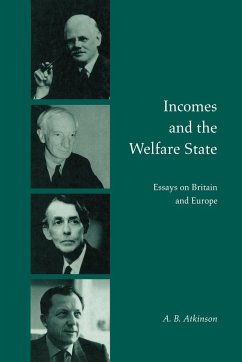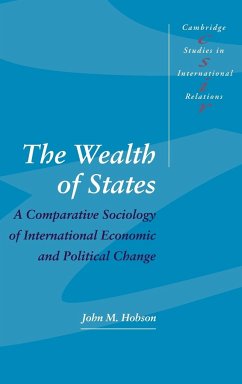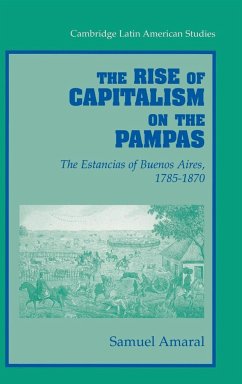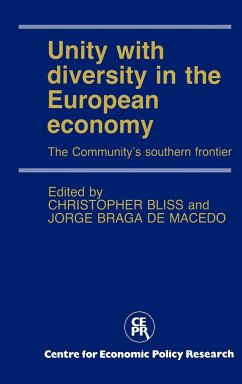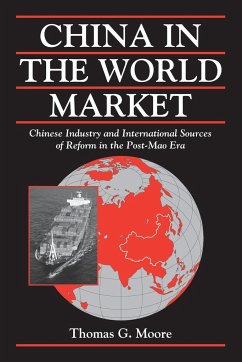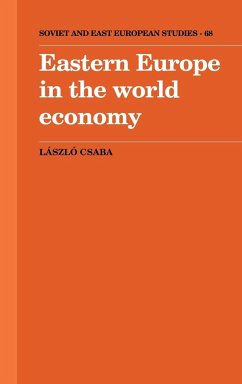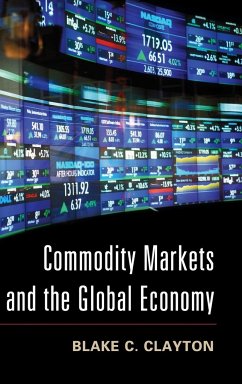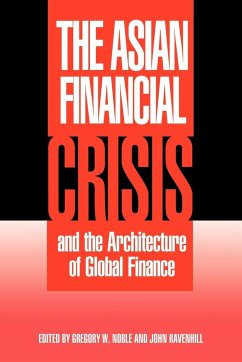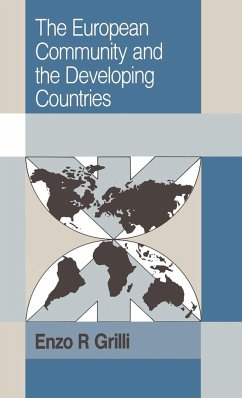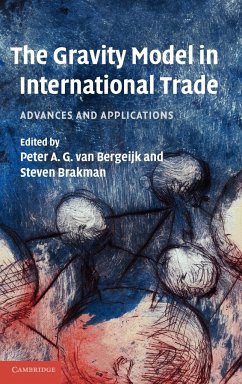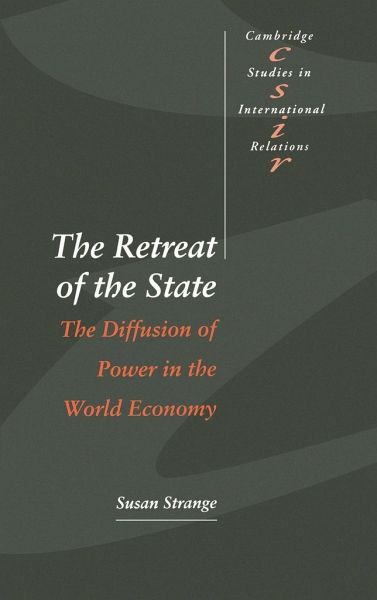
The Retreat of the State
The Diffusion of Power in the World Economy
Herausgeber: Smith, Steve; Biersteker, Thomas J.
Versandkostenfrei!
Versandfertig in 1-2 Wochen
127,99 €
inkl. MwSt.
Weitere Ausgaben:

PAYBACK Punkte
64 °P sammeln!
Adopting new and much more comprehensive concepts of both power and politics, The Retreat of the State develops a theoretical framework to show who really governs the world economy. It goes on to explore some of the non-state authorities, from mafias to the Big Six accounting firms and international bureaucrats, whose power over who gets what in the world encroaches on that of national governments. The book is a signpost, pointing to some promising new directions for the future development of research and teaching in international political economy. Its originality and scope make The Retreat o...
Adopting new and much more comprehensive concepts of both power and politics, The Retreat of the State develops a theoretical framework to show who really governs the world economy. It goes on to explore some of the non-state authorities, from mafias to the Big Six accounting firms and international bureaucrats, whose power over who gets what in the world encroaches on that of national governments. The book is a signpost, pointing to some promising new directions for the future development of research and teaching in international political economy. Its originality and scope make The Retreat of the State of great importance for scholars and students of international relations, business and management.
Table of contents:
Part I. Theoretical Foundations: 1. The declining authority of the state; 2. Patterns of power; 3. The limits of politics; 4. Politics and production; 5. The state of the state; Part II. Some Empirical Evidence: 6. Authority beyond the state; 7. Telecoms - the control of communication; 8. Organised crime - the Mafias; 9. Insurance business - the risk managers; 10. The Big Six accountants; 11. Cartels and private protectionism; 12. International organisations - the econocrats; Part III. Conclusions: 13. Pinocchio's problem and other conclusions.
Who is really in charge of the world economy? Not only governments, argues Susan Strange. Big businesses, drug barons and accountants all encroach on the so-called sovereignty of the state. Professor Strange examines this rivalry and points to some important new directions for international relations, business and economics.
Original study asking who is really in charge of the world economy.
Table of contents:
Part I. Theoretical Foundations: 1. The declining authority of the state; 2. Patterns of power; 3. The limits of politics; 4. Politics and production; 5. The state of the state; Part II. Some Empirical Evidence: 6. Authority beyond the state; 7. Telecoms - the control of communication; 8. Organised crime - the Mafias; 9. Insurance business - the risk managers; 10. The Big Six accountants; 11. Cartels and private protectionism; 12. International organisations - the econocrats; Part III. Conclusions: 13. Pinocchio's problem and other conclusions.
Who is really in charge of the world economy? Not only governments, argues Susan Strange. Big businesses, drug barons and accountants all encroach on the so-called sovereignty of the state. Professor Strange examines this rivalry and points to some important new directions for international relations, business and economics.
Original study asking who is really in charge of the world economy.





